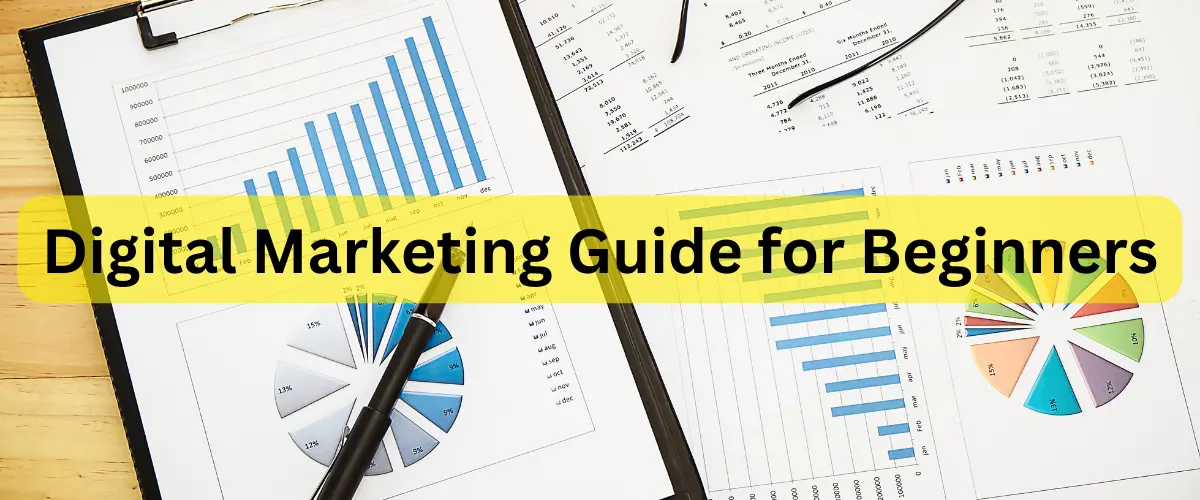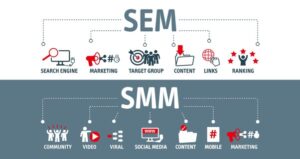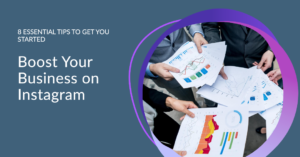Detail Guide On Digital Marketing for Beginners
- 1 Digital Marketing VS Traditional Marketing
- 2 Strategy VS Tactics – What’s the Difference?
- 3 The Core Four Fundamentals
- 3.1 Business Model
- 3.2 Target Market
- 3.3 Messaging
- 3.4 Media
- 4 Organic Versus Paid Marketing
- 5 Direct Response Versus Brand Marketing
- 5.1 Cardinal Sin of Marketing
- 5.2 Discovery Versus Search Marketing
- 5.3 Marketing Services Versus Products
- 5.4 B2B Versus B2C Marketing
- 6 Conclusion
In this comprehensive guide, we will cover the key fundamentals every marketer needs to know in 2024 to get better results.
Proper foundational knowledge separates those achieving success from those struggling unnecessarily. By learning these essential digital marketing concepts and strategies, you will be far better positioned for sustainable growth.
Digital Marketing VS Traditional Marketing
Many assume digital marketing to be massively complex. In reality, it simply refers to marketing done through digital channels like:
- Search Engine Optimization: Keywords, rankings, links, traffic, visibility, authority, indexing, crawling, optimization, semantics.
- Social media platforms: Engagement, sharing, communities, influence, relationships, conversations, commenting, tagging, trending, viral.
- Pay-per-click ads: Targeting, bidding, campaigns, creatives, landing pages, relevance, cost per click, budget, tracking, attribution
- Email: Subscribers, list building, deliverability, open rates, click-throughs, opt-ins, segmentation, automation, sequences, personalization
- Website: optimization Speed, responsiveness, formatting, metadata, navigation, calls to action, forms, testing, friction, user experience
Contrast this to traditional marketing utilizing mediums like:
- Television: Broadcast, cable, impressions, prime time, ratings, antenna, commercials, studios, Nielsen, sitcoms
- Radio: Terrestrial, streaming, signal, DJs, morning shows, drive time, commutes, contests, infomercials, audio
- Newspapers: Print, circulation, publishers, dailies, editorials, subscribers, kiosks, sections, comics, classifieds
- Magazines: Features, glossy, niche, masthead, advertorial, columns, subscriptions, demographics, frequency, curation
- Billboards: Outdoor, driving, highways, dimensions, visibility, impressions, creativity, landmarks, leases, routes
Traditional advertising has its place, but digital channels unlock immense advantages:
- Wider Reach Digital allows access to billions globally versus limited local reach previously.
- Targeting Digitally targets only your best-fit audience rather than everyone.
- Cost-Effectiveness Digital tends to be far cheaper than high-cost traditional like TV ads.
- Immediate Feedback: Run an ad and know if it works within minutes instead of months.
- Tracking Digitally track real-time costs and results for optimization.
- Digital will increasingly dominate all marketing, but traditional channels can still supplement your strategy.
Strategy VS Tactics – What’s the Difference?
Far too many marketers fail by rushing into tactics without strategic clarity. Remember, strategy drives everything else. Get it wrong; nothing else matters.
Strategy refers to big-picture decisions like:
- Business model design
- Identifying your best market
- Crafting your messaging
- Media channel choices
Tactics represent detailed execution decisions within the strategic frameworks like:
- Posting frequency
- Content formats
- Ideal posting times
- Number of memes
A tactical question asks: what is the best time to post on social media?
A strategic question examines which platforms we should be active on in the first place.
Master strategy first, then apply appropriate tactics.
The Core Four Fundamentals
We believe four key strategic pillars make or break any marketing strategy. We call them the Core Four:
Business Model
This includes your offer, pricing, delivery mechanism, and anything defining value exchange dynamics. Engineer profitability and demand from the start.
Target Market
Be ruthlessly targeted, defining your ideal customer avatar. Capture demographic, geographic, and psychographic details statistically most likely to buy from you.
Messaging
Connect with your audience, highlighting how you uniquely solve their problems better than alternatives. Share customer stories and case studies proving your capabilities.
Media
With strategic clarity, your ideal channels become self-evident. Avoid spreading yourself thin without focusing. Just be where your clients are.
Most incorrectly start with tactics and channels before locking down their strategy. By taking this methodology, your foundations will enable marketing success.
Organic Versus Paid Marketing
Organic marketing involves creating free content that does not require ad spending for distribution. For example, an uncontrolled Facebook post or a new blog article.
Paid conversely uses advertising budgets to actively promote your content to more users on a platform via targeting, like running a YouTube video ad. Organic is essentially free to post but typically offers limited reach since platforms favor paid content.
Paid offers immense scale quickly but carries associated costs. Ultimately, choose based on budgets and how quickly you hope to see results. Often, a blended approach works best long-term.
Direct Response Versus Brand Marketing
These two primary marketing thrusts serve very different purposes:
The direct response aims for immediate, measurable actions like:
- Lead generation
- Sales
- Call or form submissions
You can directly track responses triggered by your ads or content.
Brand marketing focuses longer-term on:
- Trust
- Credibility
- Authority
Harder to quantify but vital for sustainability.
Cardinal Sin of Marketing
Expecting direct response metrics from brand-building campaigns. This causes much heartburn yet remains prevalent.
Use the right approach for each goal and respect very different time horizons in assessing their success. Blend appropriately for your business life-cycle needs.
Discovery Versus Search Marketing
Another key marketing dichotomy depends on user intent within platforms.
Search platforms like Google feature people actively querying with a purchasing goal. Discovery environments like Facebook offer more casual, less commercial browsing.
Facebook users don’t wake up ready to buy like Google searchers.
This drives required approaches – search rewards direct problem-solution listings, while discovery needs creative engagement before commercial consideration.
Understand the intent and align the tone accordingly.
Marketing Services Versus Products
Most marketing advice focuses on physical products. Services remain very different requiring specialized understanding around intangibility and trust.
Products allow tangible demonstrations of features and benefits. Services require selling outcomes and end-states since the process remains opaque.
Everyone understands buying a pen. Professional services seem vague until personally experienced.
So showcase client testimonials and before-after states to sell promised transformations.
B2B Versus B2C Marketing
B2B sells to other businesses. B2C sells to everyday consumers. Very distinct frames of reference are needed for each.
B2B focuses on fewer, high-value sales requiring deep relationship selling.
B2C needs volume-driven approaches prioritizing emotional connections and simplicity.
From targeting to messaging to products, specialized strategies apply. Misapplying approaches kill results fast.
Conclusion
We have only scratched the surface of core digital marketing foundations, highlighting several pivotal paradigms.
Truly optimizing any marketing strategy requires respecting these key differences in channels, approaches, and contexts.
Those who take the time to learn fundamental frameworks always outperform transient tactical enthusiasts. Conceptual clarity drives consistent success.
So, focus on truly understanding these basics before chasing vanity metrics with tactical tools. Establish strategic soundness first, then build textures tactically.
This separation between worlds remains little discussed yet proves absolutely vital. We hope this piece provides an inspiring start to your digital marketing journey in the right direction.
The difference between mediocrity and excellence depends on it.

















